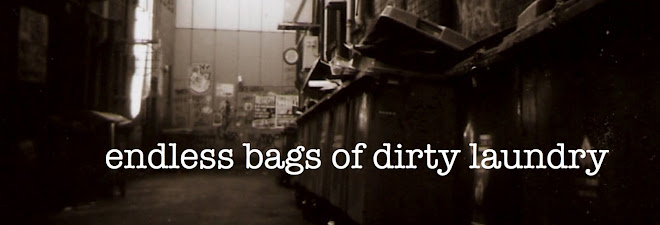A little while ago I went to an exhibition at the Heide showing photographic work from Carol Jerrems, William Yang, Larry Clark and Nan Goldin, all from roughly the same era (1970s–1980s). I was reluctant to trek all the way out to Heidelberg when I wasn't even familiar with any of the artists, but something about the promotional image (Jerrems' stunning 'Vale Street') told me I shouldn't miss it. I convinced a friend to drive me out one Saturday, and I'm so glad I was able to see work from these four wonderful photographers. Goldin's images are confronting if only because they are so unashamedly warts-and-all; Yang's visual stories from pre-AIDs gay Sydney are breathtaking in their intimacy; Clark's gorgeous presentation of mid-American youths doing drugs and having sex is a natural precursor to his debut feature film Kids (1995), and probably my favourite images from the exhibition; and Jerrems' depiction of 1970s Australia from a female perspective is both fascinating and inspiring.
While I usually write only about my own experiences and photos on this blog, I wanted to take a moment to talk about this fantastic exhibition because I have rarely been so moved by the work of other photographers (Rennie Ellis is the only other obvious example, but that's another story). Specifically, I want to talk about Jerrems.
Her work - at least that which was presented in the exhibition, though I suspect that constitutes a lot of it - is not consistently great. There were some images that didn't move me at all, and which I thought were quite ordinary. But when Jerrems took intimate photos of people, and particularly of women, she seemed to reveal these essentially universal emotions: pride, shame, lust, defiance, insecurity, power, fear. Maybe that's why 'Vale Street' is so famous; all these emotions and more are captured so perfectly in that one frame.
Occasionally, she turned the lens on herself. Standing in front of a mirror, camera partly obscuring her face, Jerrems would shoot herself. I have read interpretations that talk about a deconstruction of the female gaze, and while I'm sure that is in there, I think the images are powerful at a more basic level. For me, they show a woman who is intensely curious about her body. Her stance and gaze (where it's visible) reveal a calm inquisitiveness - a gentle wonder - that is only just prevailing over the self-criticism, shame and insecurity that every female feels at some point (and often too many) in their lives. This is reinforced with tragic execution in her hospital self-portraits, where she examines her mutating and dying thirty-year-old body. In all of Jerrems' self-portraits, she is looking at herself, for no one but herself, and learning to accept. In this way, maybe the deconstruction mentioned above is apt; Jerrems is reclaiming the gaze from the countless men (and women) who have judged before her. It's a triumph - over others and over herself - that a lot of women probably never reach.
Like every other woman and girl I know, I have experienced the volatile and highly charged relationship between the self and the body. For me it started out with indifference, before moving (with a lot of peer encouragement) to intense scrutiny, on to shame (manifested in the constant attempts to hide it), reluctant discovery, the first stages of acceptance, and most recently, the beginnings of pleasure and admiration. It's a vital process, and one I'm pleased to be in. But even as I approach total acceptance and celebration, the negative views of the body are impossible to kill. This ongoing battle between love and hate, acceptance and rejection, is undoubtedly what I respond to most strongly in Jerrems' self-portraits.
The photo at the top of this post is a direct response to how Jerrems' images made me feel. I'm not quite ready to reveal close-up details, too much skin, or even my face - but I am willing to really look at myself, and to embrace the aspects of my body that are beautiful, but which I always thought were unsightly. It's hard to post even this for fear of judgement. That I'm unattractive. That I'm attractive. That I'm unoriginal. That I'm vain. But then I think of Jerrems, and I know that I can't be judged if the image is for my eyes only. And it is.
7.12.10
Subscribe to:
Post Comments (Atom)





No comments:
Post a Comment